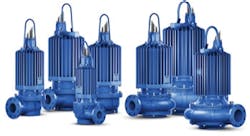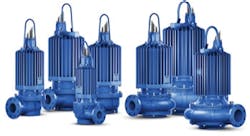Water Briefs
Firms Team on Airport Deicing Research Project
Naturally Wallace Consulting (NWC) is a consulting partner with Gresham, Smith and Partners (GS&P) on a research project to identify onsite and offsite technologies for treating stormwater contaminated with airplane deicing fluid for the Airport Cooperative Research Program (ACRP). The team will evaluate the performance of currently installed technologies, along with potentially emerging technologies, and provide guidance to help airports faced with increasing regulatory and technical challenges in selecting the best available method for treatment.
Annually, millions of gallons of stormwater and wastewater from glycol-based aircraft deicing and anti-icing fluids (ADFs) are produced in the United States and requirements for handling and treatment vary from state to state. The Effluent Limitation Guidelines (ELG) being developed by the EPA will likely standardize effluent limits and collection efficiencies, but will not provide guidance to help airport operations managers and engineers select the optimal system for their particular geographic, temperature, and site constraint parameters.
The Transportation Research Board of the National Academies, a private, non-profit institution that provides services to the government, the public, and the scientific and engineering communities, manages the ACRP. The research study will culminate with the publication of Guidance for Treatment of Deicing Impacted Airport Stormwater for ACRP Project 02-29 expected to be released in 2013.
Company to Provide Water Treatment for Thermal Solar Power Plant
Crown Solutions, a Veolia Water Solutions & Technologies company, has signed a contract with Abener-Teyma, a joint venture of two Abengoa subsidiaries, for the supply of an integrated, near-zero-liquid-discharge water treatment system. This system will be installed at the world’s largest thermal solar power plant, located in Gila Bend, AZ, and operated by Abengoa Solar.
The plant consists of two 140 MW steam generator/turbine/generator units supplied with heat from a 1,800 acre Solar Collector Field. Unique to the plant is a large thermal storage system that allows it to continue to generate power for up to six hours after sundown.
Crown Solutions’ water treatment process consists of a 4,500 gpm integrated well water and wastewater recovery system including Veolia’s patented Actiflo® system for softening. The overall system recovery will be in excess of 95%.
ISCO Industries’ Andy Wright Elected to WASDA Board
ISCO Industries, a Louisville, Ky.-based pipe distributor and custom fabricator of piping products, recently announced that Andy Wright, ISCO’s director of waterworks, was elected to serve on the Water and Sewer Distributors of America (WASDA) Board of Directors for 2011-2012. His service on the board officially began on March 1, 2011.
Wright’s responsibilities as a WASDA board member include: voting on strategic and operational issues for the organization; attending meetings and bi-annual conferences; and serving as one of WASDA’s fiduciaries.
“As a long-standing member of WASDA, we are pleased to bring Andy into the leadership of the organization, where decisions are made that not only impact our members but the industry at large,” said WASDA President Deron Johnson. “We look forward to Andy’s contributions that will help advance the mission of WASDA.”
Wright has been an active member of WASDA for 20 years. He began his career in the waterworks industry in 1982 after graduating college. He worked in various roles including branch manager, sales and as a regional manager until he started his own waterworks company in 2006 before joining ISCO Industries in 2009.
Demand for Emergency Process WaterDrives Mobile Treatment Market
Escalating demand for high-purity water in industrial and potable applications has triggered growth in the world mobile water treatment market across both mature and emerging economies. Mobile water treatment systems offer purified water for a short term in emergencies, ensuring that production cycles are not hampered.
New analysis from Frost & Sullivan (http://www.environmental.frost.com), World Mobile Water Treatment Market, finds that the market earned revenues of $425.7 million in 2009 and estimates this to reach $895 million in 2016.
“As funding becomes more available, demand for mobile water treatment systems will likely increase,” said Frost & Sullivan Industry Analyst Pritil Gunjan. “With improved technology, such as reverse osmosis (RO) and electrodeionization, trailers need not be taken back for regeneration and refurbishment, thus reducing overall cost and chemical effluents.”
Although the outlook for the market looks upbeat, there are some challenges clouding its landscape. The economic downturn had discouraged capital investments. Governments worldwide and industries have postponed investments in the water treatment sector. This has caused the world mobile water treatment systems market to grow at a slightly restrained rate.
Huge capital investments and lack of visibility on return on investment (ROI) hinder penetration into new markets and restrain expansion of fleet size. Significant capital investments are required for owning or expanding fleet size of rental mobile water treatment units. Each unit costs more than $250,000 to $300,000, with no guaranteed break-even period. Thus, this limits the market size. Price sensitivity among end-users is another issue curtailing market progression.
World Mobile Water Treatment Market is part of the Environmental Growth Partnership Services program at Frost & Sullivan. This is fee-based market research which includes research in a variety of water-related markets.

